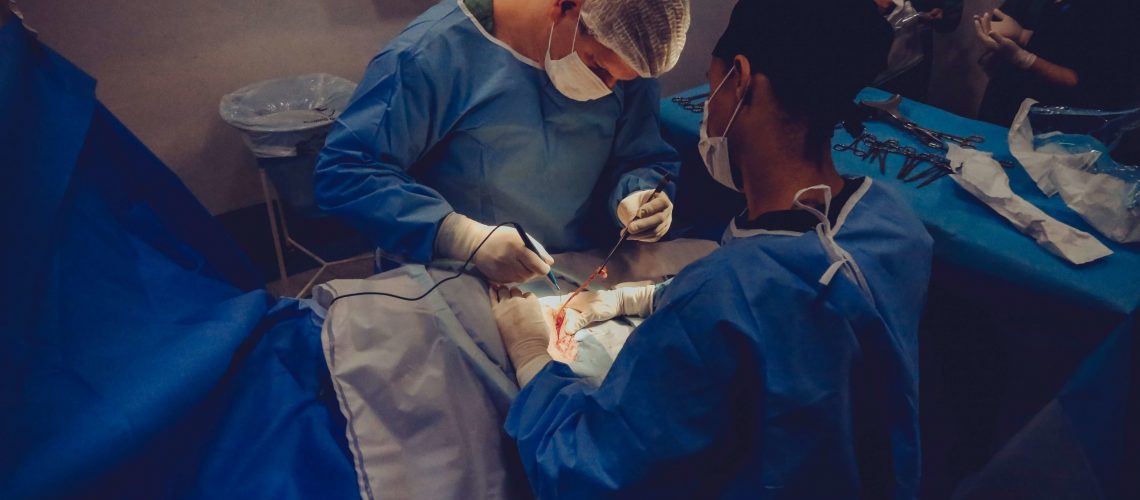Knee pain can be debilitating and can negatively affect your quality of life. There are many treatment options available and steps you can take to help alleviate the pain, but at a certain point, it may become evident that a knee replacement would be your best choice.
Knee replacement surgery, also known as arthroplasty of the knee, is performed when severe pain in the knee along with significant mobility problems and extensive damage to the knee is unchanged by other treatment and therapy options.
If your orthopedic surgeon recommends knee replacement surgery, you want to ensure you do not wait too long. We will go over why your doctor may be recommending knee arthroplasty for you and why it is essential to do it before it is too late.
Contents
Reasons To Have Knee Arthroplasty
Your orthopedic surgeon may recommend a knee arthroplasty if you have severe chronic pain and suffer from one of the following conditions.
- Osteoarthritis, also known as wear and tear arthritis, occurs when the cartilage breaks down over time, causing pain and limiting mobility. Osteoarthritis is a degenerative joint disease most commonly affects people over 50, but it can happen anytime.
- Rheumatoid Arthritis (RA) happens when the immune system attacks the tissue causing pain, inflammation, and stiffness in the joints. RA can occur at any age, and symptoms may fluctuate.
- Post-Traumatic Arthritis happens due to an injury and is a type of osteoarthritis. Generally, the symptoms do not last long; however, if it extends beyond six months, it is considered chronic.
A report published in the Journal of Bone and Joint Surgery found that delaying surgery can affect the patient’s ability to receive the full benefits of the surgery. However, if the surgery is done too soon, then patients may end up needing to have another knee replacement later on in life.
What Is Knee Replacement Surgery?
Two types of knee replacement surgery are a total knee replacement and a partial knee replacement.
- A total knee replacement, also called arthroplasty, is a surgical procedure to resurface the knee damaged by arthritis, replacing both sides of the joint. Metal and plastic parts are used to cap the ends of the bones that form the knee joint, along with the kneecap. Today’s total knee replacements generally function well for up to 15 years for many patients.
- A partial knee replacement is done only when the affected part of the joint is replaced, along with removing damaged tissues and bone through a small incision, and also has a shorter recovery time.
Most doctors will try alternative therapies and treatments before recommending a knee replacement.
There are several reasons why Some people delay surgery because:
- They are nervous about the procedure
- They do not want to go through a long recovery process
- They are afraid they will end up worse
- They are worried about a reduction in mobility during the healing process
- Every surgery comes with possible risks, and it is essential to talk with your orthopedic doctor about your concerns
What Are The Risks of Delaying Knee Replacement Surgery?
- Your pain will continue, possibly becoming more severe and negatively impacting your quality of life. While this sounds obvious, it is critical because you will be dealing with pain for an extended period. It can ultimately lead to more significant issues and a longer recovery when you finally have knee replacement surgery.
- The condition of your knee could worsen as your knee deteriorates.
Over time knee osteoarthritis can cause the joint to look crooked or deformed and increase the intensity of the pain. As your knee worsens, your body will compensate and place added strain on your other knee and possibly the back and hips.
Chronic pain can also cause depression and affect other areas of your life, such as your ability to exercise, cause weight gain and other health problems and negatively impact your quality of life.
- Your mobility and recovery may be affected by putting knee surgery off too long. If you are not active due to knee pain, the muscles in your legs will lose strength, slowing your recovery and making physical therapy even more challenging due to loss of muscle mass and mobility.
- Waiting too long can increase the risk of complications during and after surgery. Some issues include weight gain, low endurance, or if you begin to have other medical problems like a cardiac condition that would create a more complex surgery and require a longer recovery time.
Knee replacement surgeries are very successful procedures, and when done at the right time, patients generally experience many benefits and pain relief.
At Thunder Basin, Our Expert Orthopedic Surgeons Are Here To Help You
Our team of experts at Thunder Basin Orthopaedics and Sports Medicine is here to help you know when the best time is to have your total knee replacement surgery. We want what is best for you and your recovery process.
We are experienced in diagnosing and treating everything from sports injuries to joint replacement and traumatic injuries. Our goal is to improve your quality of life and get you back on your feet! Our offices in Gillette and Douglas, Wyoming, are here to serve you! Book an appointment with us today!


